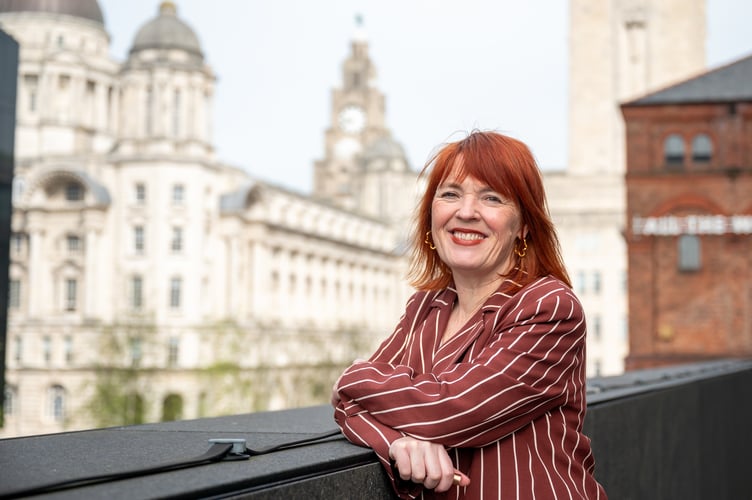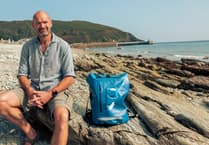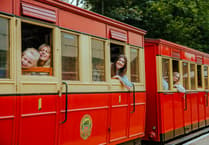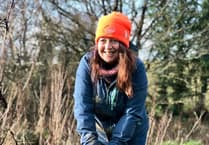‘I’m going to be brutally honest’ Claire McColgan tells me. She’s the Director of Culture for Liverpool and Deputy Chair of the UK City of Culture panel, she’s also wearing a spectacular brown corduroy suit.
‘Please do’ I insist.
‘I worked in a building overlooking the Liverpool ferry terminal and would see the ferry come and go twice a day, every day for 20 years and I never got on it. It took Deborah [Heather, CEO of Visit Isle of Man] coming over to talk to me about learning from Liverpool in terms of progression around tourism, for me to come over. I came for a weekend and was blown away. I can't believe I'd never been before, because it's beautiful and it's like the Lake District without the crowds.’
Claire’s perspective on the Isle of Man is something that Deborah (Visit Isle of Man) is hoping Claire can recreate in a lot more people. And if anyone can help, Claire is the woman. With a background in community arts and a degree from John Moore University, Claire has been a huge part of Liverpool’s transformation from a rough, run-down northern city into the electric, bustling hub of culture it is today. She had a hand in the bid (and win) for Liverpool as European Capital of Culture, was part of the team who worked with scientists on how best to open up events during Covid for the whole of Europe, she also helped put on the Netball World Cup back in 2019 and, more recently, was behind the organisation of Liverpool hosting Eurovision for Ukraine. Quite the resume, to say the least. Turning the spotlight to the island, I asked what Claire thought of her visit.
‘There are so many brilliant things here. Once I’d been I came back again and again. It's just gorgeous, with the sea and the gentleness of the place. And you’re the only whole nation Biosphere in the world which is extraordinary. That’s what I'm excited about with this relationship with Liverpool.’
The phrase ‘there’s nothing to do here’ has been bandied about for years and yes, we might not have London’s West End or Manchester’s hipster scene but what we do have here is a unique form of tourism that shouldn’t be viewed as inferior to the bright lights of the UK’s big cities.
‘People don't come here on hens and stags anymore’ Claire told me when I asked her what sort of tourism the island should be targeting, ‘But you've got this incredible opportunity to bring tourists who are really interested in the environment and coast. There is so much opportunity here, masses. What I find really interesting, in its relationship with Liverpool, you've got this bustling city 20 minutes by plane away or a few hours by boat but then you've got the peace of here. So, you can imagine how we could work together on American tourists, you know, with Ireland as well, the potential is huge.’
The Isle of Man’s whole nation Biosphere status – it’s gentleness in complete contrast to its main tourist attraction, the TT - is something Claire would like to target to build on the island’s potential for eco-tourism.
‘I would absolutely look at that [the island’s Biosphere status] because it's unique. The Isle of Man punches so far above its weight because of its Biosphere. I just think it's extraordinary and completely unique. That's the kind of tourism you want.’
With Isle of Man Government hoping to get more young people on the island, Claire believes eco-tourism and the youth of today go hand-in-hand so focusing more on sustainable tourism could kill two birds with one stone (not a very eco-friendly metaphor, I know).
‘We’re seeing younger generations want to experience things in more of a quiet and respectful manner. And they can do that on the island. You’ve got so many sustainable activities, like your water sports – diving, kayaking, canoeing, paddle boarding, sea dipping, which is very mindful and good for mental health. It’s a simplicity that not many other places can offer.’
Claire says eco-tourism is something other places have homed in on that hasn’t been implemented in the most sustainable way, ironically.
‘I think places that rush into everything do so with a scattergun approach and then end up with a mishmash of things that can then go in the wrong direction. And the quality is not as good. It could have happened with us in Liverpool, but we opted to take our time to make sure we got it right. It’s all about balance. And when the balance goes out, you’re in trouble. But coming back to the Isle of Man, as well as focusing on your Biosphere status, I’d also continue to look at the other extreme – cruises – and how best to link Liverpool, Dublin, or Belfast because they're your day visitors who spend a lot of money.’
Those aren’t the only focus points though, a huge aspect of people visiting is accessibility to the island, which was part of the reason Claire stayed away for so long.
‘I would much rather come by sea than I would by air, but it's quite expensive. I think making that easier, for me, would be a priority, because it's not just one way, is it? You're not just taking people out of the Isle of Man over to Liverpool. You want people from Liverpool to say, “All right, what should we do tonight? Let's get on a boat to the Isle of Man, stay over and come back on Monday.” You want that sort of ease and accessibility. And I think that is something we need to look at.’
I asked Claire what she thought would be the best way to achieve that accessibility to the island.
‘I don't know the ins and outs of the Isle of Man Steam Packet Company, but the simplest thing is trying to put more ferries on. I say that knowing nothing about transport’ Claire tells me laughing. ‘But I do think more and more people want to travel by sea, and they just want it to be straight-forward and affordable. It’d be so much easier for people to just pop over it was more accessible.’




